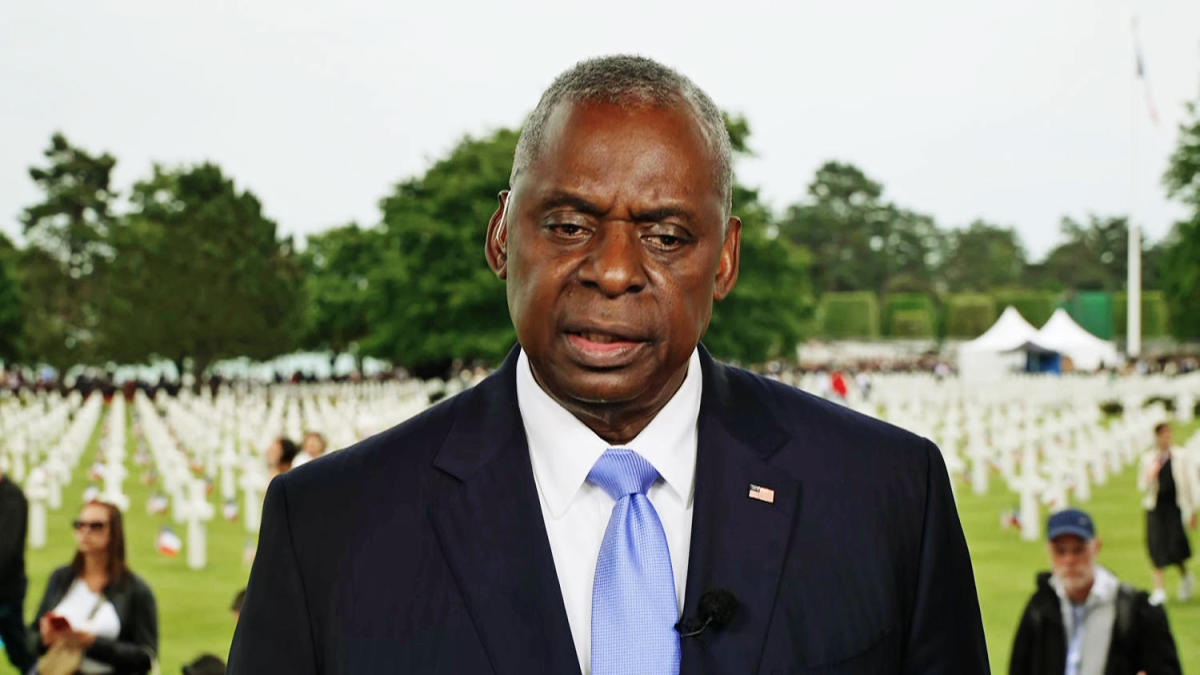World
Defense Secretary Austin says protecting civilians in Gaza is a ‘strategic imperative’

Defense Secretary Lloyd Austin told NBC News that “protecting the civilian population is a strategic imperative” in the Gaza Strip, an implicit criticism of Israel’s conduct of the war, which has seen a skyrocketing death toll and a humanitarian crisis that has brought the civilian population to the brink of starvation.
Austin made the comments in an interview Thursday with NBC News’ “Nightly News with Lester Holt,” following a D-Day commemoration ceremony at the Normandy American Cemetery in France. Austin discussed the need for global stability, international support for Ukraine, and Israel’s war in Gaza.
Tune in to NBC Nightly News at 6:30 pm ET / 5:30 pm CT to see the interview (check local listings).
When asked if Israel’s goal of destroying Hamas is militarily possible, Austin’s response focused on a hearts-and-minds approach, rather than a battlefield victory. “Hamas is an idea,” Austin said. “And the way that you defeat an idea is with a better idea.”
“You must do the right things to provide for the civilian population so that you strip the civilian population away from Hamas,” Austin added, calling for increased humanitarian aid and for the international community “to do what was possible to help the Palestinian people.”
He reiterated that the U.S. will continue to support Israel’s defense and its goal of defeating Hamas, objectives Austin said were not mutually exclusive. “You can accomplish your objectives and still protect the civilian population,” he said, calling civilian protection “a strategic imperative” that “will enable long-term success.”
He spoke about the need to defeat Hamas, but reframed the task not as full eradication, as Israel seeks, but one of depleting Hamas of military capability, in line with the cease-fire plan presented by President Joe Biden last week.
“It’s possible to do both,” Austin said. “And hopefully we’ll see a change in the future.”
Under Austin, the Pentagon had established new procedures for preventing civilians deaths in U.S. military operations. During a visit to Israel in December, Austin had delivered a blunt message: that the country could face a “strategic defeat” that would undermine its security if it did not do more to protect civilians.
In the months since, the death toll in Gaza has continued to climb, and Israel came under increasingly strong international condemnation for the war’s death toll. According to the enclave’s health ministry, at least 36,000 people have been killed since the start of the war, about a third of them women and children.
Austin also discussed Ukraine, linking the Allied efforts during World War II to the current war being fought on the Continent. “Providing security assistance to Ukraine matters,” Austin said, “Not just for Ukraine, and not just for Europe, but it matters to the world.”
“This is about protecting the rules-based international order,” he said. “It’s about making sure that tyrants can’t wake up one day and decide to erase his neighbor’s borders and annex his neighbor’s property.”
Austin also confirmed that he was cancer-free, amid ongoing concerns and controversy about his health. Austin announced this week that his chief of staff, Kelly Magsamen, will be stepping down.
Magsamen was one of the few people informed that Austin was in the hospital in January, an episode that drew widespread criticism for his delay in notifying the White House and key Pentagon officials that he was experiencing complications after a minimally invasive procedure to treat previously undisclosed prostate cancer.







:max_bytes(150000):strip_icc()/roundup-writereditor-loved-deals-tout-f5de51f85de145b2b1eb99cdb7b6cb84.jpg)


